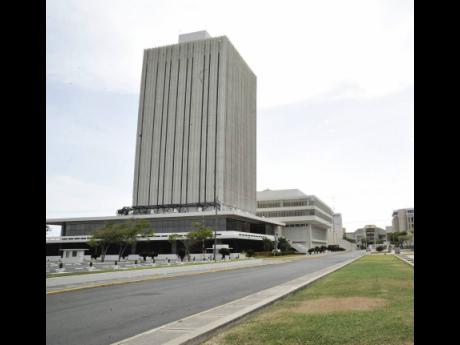Jamaica ranks fourth in push towards digital money – report
Jam-Dex, Jamaica’s newly minted central bank digital currency, or CBDC, ranked fourth among a group of 10 leading countries that are issuing CBDCs in retail form for use as money, according to a new report by PricewaterhouseCoopers.
The report “analyses and ranks” the leading retail and wholesale CBDC projects, by measuring “central banks’ level of maturity in deploying their own digital currency” .
Nigeria, with its eNaira, topped the index, with expectations that the e-currency will raise the level of financial inclusion in the African country from two-thirds to 95 per cent.
Jamaica, too, is aiming to reach more of the unbanked through Jam-Dex, but its penetration target is not referenced it the report. The public roll-out of the local CBDC is just getting under way.
“Within our region, the success of the Sand Dollar in The Bahamas and planned CBDCs in Jamaica and East Caribbean, will likely spur CBDC development in other Caribbean territories where financial inclusion is one of the key desired outcomes,” said Zia Paton, digital services leader for PwC in the Caribbean, in a curated response to the report.
The 2022 PwC CBDC Global Index comes as over 80 per cent of central banks worldwide are considering or have launched CBDCs.
“This year’s index shows that central banks are ramping up activity in the digital currency space. Countries are at differing levels of maturity with CBDCs, and each country has different motivating factors. Increasing financial inclusion, facilitating cross-border payments, and controlling financial crime are all factors that come into play,” said Paton.
The report placed countries in one of two categories – retail or wholesale – based on their CBDC projects.
“CBDCs are measured via a synthetic index capturing the central banks’ progress and stance on CBDC development, in both the retail and wholesale context,” it noted.
PwC describes retail CBDC projects as “digital currencies designed for public use”. But while it places Jamaica within the retail grouping, the Bank of Jamaica, BOJ, does not. Instead Jam-Dex’s distribution is said to utilise a ‘hybrid’ model.
The central bank in explaining its choice in the early stage of its project noted that a retail CBDC relates to digital currency issued directly to all users. This would mean that all users would have CBDC accounts at the central bank. Comparatively, wholesale CBDC entails the issue of digital currency directly to commercial banks, which in turn is distributed by banks in the retail market.
The hybrid approach, the BOJ added, aims to combine the benefits of both wholesale and retail in various forms.
“Bank of Jamaica will be using the hybrid model for issuing CBDC” and “will therefore not only issue to commercial banks, but also to other deposit-taking institutions – building societies, merchant banks and authorised payment service providers, all licensed or authorised by BOJ. These entities will distribute CBDCs to the retail market,” it said.
The retail top 10 projects in order of ranking are: Nigeria, The Bahamas, China, Jamaica, Eastern Caribbean, Ukraine, Uruguay, Thailand, Sweden and South Korea.
The wholesale top 10 projects are: Thailand, Hong Kong, Singapore, Canada, France, South Africa, United Arab Emirates, Japan, Saudi Arabia and Switzerland.
The report added that several retail projects are now live. The wholesale projects, however, are largely in less mature phases.
“Retail projects in the index are led by the Central Bank of Nigeria’s eNaira, the first CBDC in Africa, and the Sand Dollar, issued by the Central Bank of the Bahamas as legal tender in October 2020, making The Bahamas the first country to launch a CBDC. Jamaica’s Jam-Dex was also recently launched and is now available via a digital wallet offered by one of the local banks,” PwC said in a statement to editors.
The BOJ has been running advertisements saying Jam-Dex “is coming soon”. Nigeria and China were the most advanced in the process, based on key statistics in the PwC report.
Nigerians created 666,000 eNaira wallets with over 35,000 transactions, mostly business-to-person rather than person-to-person, up to December 2021. In China, there were over 261 million CBDC wallets with total transactions above US$14 billion as of February 2022.
The BOJ still has to convince Jamaicans on Jam-Dex’s usefulness when compared with physical cash and cards for transactions.
It’s off to less than an auspicious start, having been heavily mocked for the choice of Jam-Dex as the digital currency’s brand name. Some of the criticism related to the inclusion of ‘dex’ in the moniker, which cryptocurrency traders generally associate with a decentralised exchange. This would contradict the centralised nature of Jam-Dex as fiat currency. The BOJ countered, however, that ‘dex’ was the shortened form for ‘digital exchange’.
To help raise awareness of the digital currency, Finance Minister Dr Nigel Clarke utilised his Jam-Dex wallet to make a payment to his barber on the House floor in March.
Jam-Dex was developed by BOJ and Irish technology provider eCurrency Mint, and pilot tested in 2021. BOJ minted $230 million for the pilot for distribution through local banks, which it later declared a success. Only one of eight commercial banks took part in the pilot programme.

